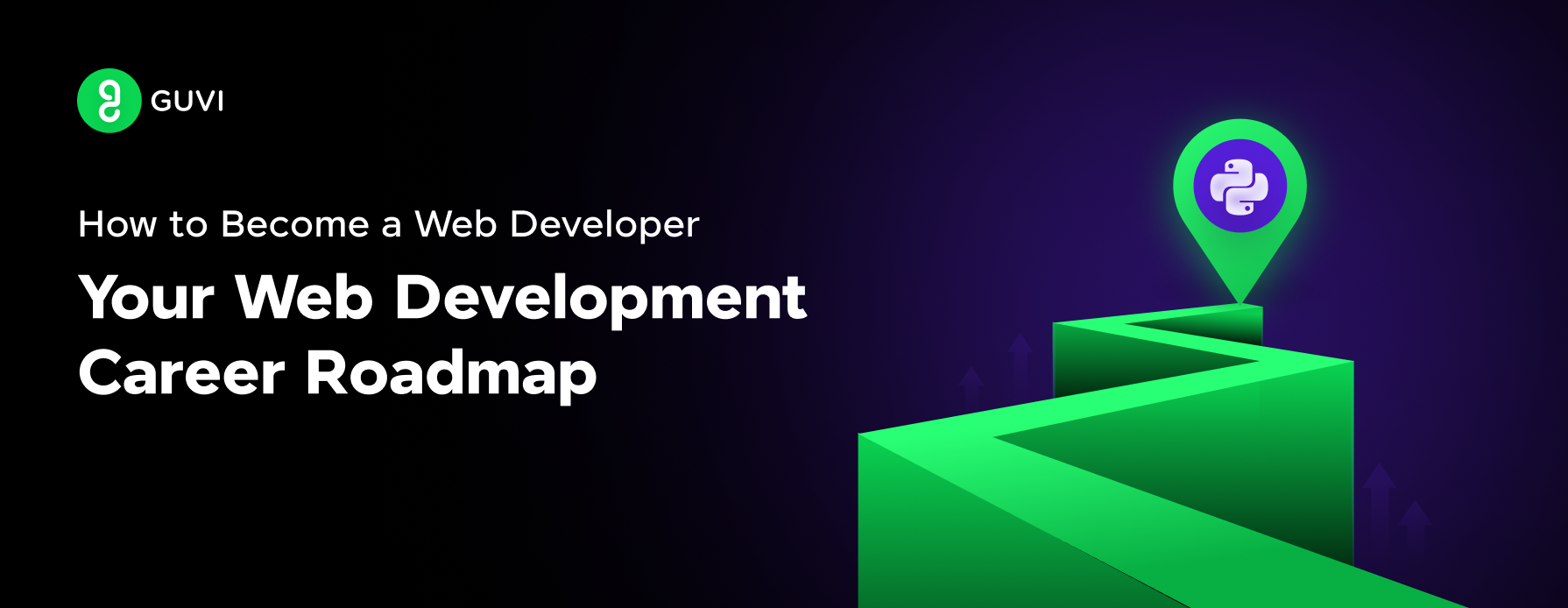
How to Become a Web Developer – Your Web Development Career Roadmap
Apr 08, 2025 11 Min Read 2946 Views
(Last Updated)
Finding a clear path to become a web developer can feel overwhelming, right? I totally understand, as I faced the same challenge when I was trying to map out my route into web development. But don’t worry, I’m here to help!
In this blog, we’ll break down the process of becoming a web developer into simple, achievable steps. Whether you’re just starting or looking to sharpen your skills, this guide will provide you with everything you need to build a strong foundation and grow as a developer. Let’s get started!
Table of contents
- What is Web Development?
- Frontend Development
- Backend Development
- Database Management
- Essential Skills For Web Developers
- Technical Skills
- Must Have Skills
- Nice To Have
- Non-Technical Skills
- Learning The Basics
- HTML & CSS
- JavaScript
- Version Control
- Command Line Basics
- Resource for Learning
- Frontend Development
- Advanced CSS
- JavaScript Frameworks and Libraries
- State Management
- Web Accessibility
- Backend Development
- Server-Side Programming Languages
- Databases
- APIs (Application Programming Interfaces)
- Server Management and Deployment
- Tools and Technologies
- Code Editors and IDEs
- Browser Developer Tools
- Building Your Portfolio
- Choose Diverse Projects
- Highlight Your Best Work
- Gaining Experience
- Open Source Contributions
- Internships
- Personal Projects
- Hackathons
- Job Search and Interview Preparation
- Polish Your Resume
- Network
- Apply Strategically
- Prepare for Technical Interviews
- Conclusion
- FAQs
- What skills are essential for becoming a web developer?
- Do I need a degree to become a web developer?
- What steps should I take to start a career in web development?
- How long does it take to become a web developer?
- What are the career prospects and salary expectations for web developers?
What is Web Development?
Web development is the process of creating, designing, and maintaining websites and web applications. It covers everything from building simple static pages to developing complex, interactive web-based software. As a web developer, your role is to bring ideas to life on the internet, ensuring information is accessible and providing engaging user experiences for people around the world.
The web development is divided into three main areas:
Frontend Development
Frontend Development focuses on building a user interface of a website where the users can interact with the browser directly. It involves creating visually appealing user interfaces and ensuring seamless user experiences using languages and technologies like HTML, CSS, and JavaScript.
Backend Development
Backend development handles the server-side functionality of web applications, including managing databases, server interactions, and application logic. Backend developers use languages such as Python, Ruby, and Node.js to ensure that web applications run smoothly and securely.
Database Management
Effective database management is crucial for storing, retrieving, and organizing data within web applications. A solid understanding of database systems like MySQL, MongoDB, and PostgreSQL is essential for backend development, ensuring data is handled securely and efficiently.
As you begin your journey to becoming a web developer, it’s important to choose the path that interests you the most. That said, having a well-rounded understanding of all aspects of web development can be highly beneficial, even if you decide to specialize in a specific area. Lets dive into the essential skills for a web developer.
Essential Skills For Web Developers
Let’s discuss the necessary technical and interpersonal skills for a web developer.
Technical Skills
Technical skills involve the ability to design, develop, and maintain websites from the ground up. These skills cover everything from coding and debugging to ensuring a smooth, functional user experience. Technical skills can be divided into must-have and nice-to-have skills. Let’s dive into must-have skills.
Must Have Skills
Must have skills are some technical skills that a developer must learn to become a successful web developer. Below are few of the must-have skills with their explanations:
- HTML: It is essential for structuring the content and layout of web pages.
- CSS: It is the key for styling web pages and ensuring a visually appealing design.
- JavaScript: It enables interactivity and dynamic content on websites.
- Responsive Design: Ensures websites are mobile-friendly and adapt to different screen sizes.
- Backend Languages: It powers the server-side logic, database interactions, and application functionality.
- APIs: Facilitates data exchange and integration with third-party services.
- Database Management: It is used for storing and retrieving data efficiently in web applications.
- Version Control: It helps track changes in code, collaborate with teams, and manage project versions.
After learning the must-have skills, one can start pursuing the nice-to-have skills. It is not mandatory to learn nice-to-have skills, but it will boost your profile.
Nice To Have
Apart from the mandatory technical skills, there are few technical skills that an advanced web developer can have. These skills come under the nice-to-have category. Let’s look into it.
- Testing: It ensures code reliability and reduces bugs through automated tests.
- Continuous Integration/Continuous Deployment (CI/CD): Automates testing, integration, and deployment of web applications for smoother updates.
- Containerization (Docker): Packages apps and dependencies into containers, improving development and deployment consistency.
- Cloud Services (AWS, Google Cloud, Azure): Knowledge of cloud platforms to manage hosting, databases, and scaling of web applications.
Non-Technical Skills
Non-technical skills are also known as Soft skills. Similar to technical skills, it can also be studied and learned. Skills such as communication, problem-solving, and time management, are essential for effective collaboration and project execution. These skills help web developers navigate challenges, work with teams, and ensure projects are completed on time and to client expectations.
- Problem-solving: Web development often involves finding creative solutions to complex problems. You’ll need to be able to break down large issues into smaller, manageable tasks.
- Attention to Detail: Small errors in code can lead to significant issues. Being meticulous and detail-oriented is crucial in this field.
- Continuous Learning: The tech industry evolves rapidly. Successful web developers embrace lifelong learning and stay updated with the latest trends and technologies.
- Communication: You’ll often work in teams and need to explain technical concepts to non-technical stakeholders. Clear communication is key.
- Time Management: Managing multiple projects or tasks simultaneously is common in web development. Good time management skills will help you meet deadlines and handle your workload effectively.
- Creativity: Creativity plays a significant role in web development, especially in design and user experience aspects.
- Analytical Thinking: You’ll need to analyze user requirements, debug code, and optimize performance, all of which require strong analytical skills.
We’ve seen an overview of what skills a web developer should learn. Now, let’s deep dive into each of the skills and see what are the important concepts we need to grasp from each skill. Let’s get started!
Learning The Basics
The first step of becoming a web developer is to learn the basics of web development. Building a solid foundation is essential for any skill development. Basic knowledge of web development is the key to becoming a successful web developer. Start your basics with the skills mentioned below:
HTML & CSS
The very first skill a web developer should learn is HTML. HTML is a markup language and it forms the foundation of web content, providing the structure and organization for web pages. Begin by learning the following concepts in HTML:
- Basic HTML structure: It covers the foundational layout of an HTML document, including essential elements like <html>, <head>, and <body>.
- Tags and elements: Learn about different html tags such as <p>, <style>, <li> and etc.
- Attributes: Learn about properties of the html tags such as id, class, or src.
- Forms and input types: These are elements for collecting user input, such as <input>, <form>, and various input types like text or checkbox.
The second necessary basic skill is Cascading Styling Sheet. CSS is used to style and layout web pages. It determines how HTML elements are displayed. Key concepts to master in CSS includes the following:
- Selectors and properties: Learn about CSS selectors that target HTML elements, while properties define how those elements should be styled.
- Box model: It is an essential concept that defines how elements’ content, padding, borders, and margins are displayed and spaced.
- Layout techniques (Flexbox, Grid): These are styling methods for arranging elements on a page, with Flexbox and Grid offering flexible and responsive layout systems.
- Responsive design: It is an approach to creating web pages that adapt to different screen sizes and devices.
- SASS, LESS: These are tools that extend CSS functionality, allowing variables, nested rules, and mixins for more efficient styling.
JavaScript
The next skill a web developer should learn is JavaScript. JavaScript is a powerful programming language that makes web pages interactive. It’s essential for both frontend and backend development. Start with these concepts in JavaScript:
- Basic syntax and data types: These are the foundational rules of JavaScript and the various data types like strings, numbers, and booleans used to store values.
- Functions and objects: Learn about functions, objects and how the data is stored and extracted.
- DOM manipulation: Learn how DOM manipulation is used to interact with and modify HTML and CSS on a webpage dynamically.
- Event handling: It is a method of responding to user interactions or other events (like clicks or keypresses) in JavaScript.
- Asynchronous Function (Promises, async/await): These are the techniques used for handling operations that take time without blocking the main program flow.
- ES6+ features: Modern JavaScript features introduced in ES6 and beyond, such as arrow functions, destructuring, and modules.
Version Control
The next most important skill is version control. Version control is a system that tracks changes to code over time, allowing developers to collaborate, manage project versions, and revert to previous versions when needed. Version control is crucial for collaborating with other developers and managing your code. Learn the concepts below:
- Basic Git commands: Start by learning the essential Git commands like git init, git add, git commit and git push used to manage and track changes in a project.
- Branching and merging: Learn about branching, creating new branches and merging combines changes from different branches into one.
- Pull requests: It is a method for submitting code changes to a repository, allowing others to review and approve them before merging.
- Collaborative workflows: These are strategies and practices that enable multiple developers to work together effectively on the same project using Git.
Learning about Git commands and GitHub is essential to become a professional web developer. Let’s move to the next skill.
Command Line Basics
Knowing CLI is essential because various tools such as package managing, file manipulations require command line knowledge. So, familiarize yourself with command-line interfaces (CLI). Start by learning the following tools:
- Navigation and file manipulation: Learn commands on how to navigate directories and manipulate files (e.g., create, delete, rename) in the project structure.
- Package managers (npm, yarn): Learn about the tools used to manage project dependencies, install libraries, and automate tasks in JavaScript projects.
By learning these basic skills, one can start their web development journey. Take your own time to build a strong foundation before jumping into next steps. Access the resources that help you to grasp the basic concepts below.
Resource for Learning
There are tons of resources available on the internet. These resources are popular among developers.
- Online Courses: Guvi, Udemy, Coursera, edX
- Blogs: Guvi blogs, Medium, Dev
- Online platforms: Codecademy, freeCodeCamp, MDN Web Docs
- Books: “HTML and CSS: Design and Build Websites” by Jon Duckett, “Eloquent JavaScript” by Marijn Haverbeke
Learn all these skills in a well-structured certification course on GUVI’s Full Stack Development course by reputed IITM. Through this course, you will receive mentorships, mock interviews and live online sessions.
Frontend Development
Once you laid a strong foundation, you are now ready to step into the second stage of the web developer learning journey i.e, front end development. Front end guides the user in navigating the website and allows them to interact with the application. It is responsible for creating the user interaction side of the application, ensuring it is responsive, intuitive, and visually appealing. Let’s dive into some of the advanced front-end skills one can master.
Advanced CSS
Learning advanced CSS will boost your web designing skills and make you a great front end developer. Learn the advanced concepts of CSS below:
- CSS animations and transitions: Teach yourself the techniques for creating smooth visual effects that change an element’s properties over time, enhancing user interaction.
- Advanced layout techniques: Learn more complex methods like multi-column layouts, Flexbox, and CSS Grid to create responsive and dynamic designs.
- CSS-in-JS: A pattern where CSS styles are written inside JavaScript, often used in modern frameworks like React for component-based styling.
- Frameworks: Learn a css framework called Tailwind CSS
JavaScript Frameworks and Libraries
Learning a JavaScript framework is the step up in the front end development. Nowadays, recruiters expect the candidates to know at least one JavaScript framework. Start yours today by picking any one from the below list:
- React Js: Flexible JavaScript library for building user interfaces, developed by Facebook.
- Angular Js: Platform and framework for building client-side applications, developed by Google.
- Vue Js: Progressive JavaScript framework used for building UIs and single-page applications.
State Management
Next up is state management. As your applications grow in complexity, you’ll need to manage the state effectively. Learn any one state management solutions according to the framework you choose in the above step:
- Redux (often used with React): A state management library for JavaScript apps, commonly paired with React to handle application state in a predictable way.
- Vuex (for Vue.js applications): The official state management library for Vue.js, used to manage and centralize application state in a Vue.js project.
- NgRx (for Angular applications): A state management library for Angular that uses RxJS to manage application state in a reactive and scalable way.
Web Accessibility
Learning about web accessibility and ensuring your websites are accessible to all users, including those with disabilities, is crucial. Learn about the following concepts on web accessibility:
- WCAG guidelines: The Web Content Accessibility Guidelines (WCAG) provide recommendations for making web content more accessible to people with disabilities.
- Semantic HTML: Learn about using meaningful HTML tags (like <article>, <header>, <footer>) to improve content accessibility and SEO.
- ARIA attributes: Accessible Rich Internet Applications (ARIA) attributes enhance accessibility for users with disabilities, especially in dynamic content and complex UI elements.
- Keyboard navigation: Enabling users to navigate and interact with web content using a keyboard, ensuring accessibility for users with motor impairments.
If you want to become a front-end developer, you can stop here and start building your projects that are explained in the upcoming sections. Or, you can learn backend development skills and become a full stack web developer. The choice is yours!
Backend Development
I appreciate your choice of learning backend development, it is the third step towards your goal of becoming a web developer. Backend development involves building servers, APIs, and managing databases. This part will be hidden from the users. Let’s deep dive into backend development and the necessary skills required.
Server-Side Programming Languages
Programming languages are mandatory in backend development. Server-side languages are used to handle backend logic, enabling data processing and interactions with databases. A web developer should be proficient in at least one server-side programming language. Popular choices of server side programming languages include:
- Node.js: JavaScript runtime for server-side development, allowing full-stack JavaScript.
- Python: Simple and powerful, widely used in web development, data science, and machine learning.
- Java: Known for robustness, scalability, and enterprise-level applications with frameworks like Spring.
Once you chose a programming language and learned the basic concepts. You can now start building your own server for your application from scratch. Let’s see what else you need to know.
Databases
The next thing one can master after server side programming language is database. Database is a structured collection of data that is stored electronically. It can store data in the form of numbers, texts, images, videos and other types of data. Understanding how to store, retrieve, and manage data is crucial for any full-stack developer. You have to learn the below databases:
- SQL Databases: Relational databases like MySQL, PostgreSQL, or SQL Server, storing data in structured tables with predefined schemas.
- NoSQL Databases: Non-relational databases like MongoDB (document-oriented) or Redis (key-value store), offering flexibility for unstructured or semi-structured data.
Try to implement these databases using your server side language of your choice. Implementing a database for your application is a crucial skill that every web developer must know.
APIs (Application Programming Interfaces)
Building and managing APIs is the most important skill one should acquire. APIs (Application Programming Interfaces) are the glue that connects different parts of an application or even different applications altogether. It acts as an interface between the frontend, backend and database of an application. Start by learning the required concepts of APIs that are mentioned below:
- RESTful API design: It is a design approach for building APIs based on REST principles, using HTTP methods and stateless communication for resource management.
- GraphQL: It is a query language for APIs that allows clients to request exactly the data they need, making interactions more efficient than traditional REST APIs.
- Authentication and authorization: It is a process for verifying user identity (authentication) and determining access rights (authorization) to secure resources or actions.
- API Documentation: Learn how to write a detailed documentation describing how to use an API, including endpoints, request formats, and response structures for developers.
Server Management and Deployment
The last skills that are required to become a full stack web developer are server management and deployment skills. This skill teaches a web developer how to deploy their own personal project and manage the server in a cost efficient manner. Teach yourself the art of deployment and managing servers by learning these skills:
- Cloud platforms (AWS, Google Cloud, Azure): Cloud services that provide scalable infrastructure, storage, and computing resources to deploy and manage applications.
- Containerization (Docker): A method of packaging applications and their dependencies into containers for consistent environments across different systems.
- CI/CD pipelines: Continuous Integration and Continuous Deployment pipelines automate testing, integration, and delivery of code to production for faster and more reliable updates.
- Server security best practices: Measures to protect servers and applications from unauthorized access, including firewalls, encryption, and regular updates.
Pat yourself on the back for the great achievement of learning all these skills. These are the skills and technologies that a web developer must learn during their journey. Now, as a bonus tips, we will see how you can grab a job as a web developer. Stay tuned till the end!
Tools and Technologies
As a web developer, you’ll use various tools to streamline your workflow and improve productivity. Familiarize yourself with the following code editors, IDE and browser developer tools.
Code Editors and IDEs
Code editors are lightweight tools designed for writing and editing code with features like syntax highlighting, while IDEs (Integrated Development Environments) provide a more comprehensive suite of tools for development, including debugging, version control, and built-in compilers. The common IDEs that a web developer uses are:
- VS Code
- Sublime Text
- WebStorm
Browser Developer Tools
Browser developer tools are built-in features in web browsers that allow developers to inspect, debug, and optimize web pages in real-time. They provide insights into HTML, CSS, JavaScript, network requests, and performance metrics to aid in troubleshooting and improving websites. Learn to use browser developer tools for debugging and performance analysis.
Building Your Portfolio
A portfolio is a website that describes your interests, projects, works and achievements you have done so far. It is a mandatory thing every developer needs to have. A portfolio website should be simple, attractive, informative and innovative. Let’s see how you can build your outstanding portfolio.
Choose Diverse Projects
Including a variety of projects in your portfolio is essential to showcase a wide range of skills. For example, building static websites demonstrates your understanding of HTML, CSS, and basic design principles, while dynamic web applications highlight your proficiency in JavaScript, back-end development, and databases.
Mobile-responsive designs illustrate your ability to create user-friendly experiences across different devices, ensuring accessibility and ease of use. Additionally, API integrations show your ability to work with external services and data, further proving your versatility as a developer.
A diverse set of projects like these will not only make your portfolio more impressive but also give potential employers confidence in your comprehensive skill set.
Highlight Your Best Work
When building your portfolio, it’s important to focus on quality over quantity. Select only your best projects that genuinely highlight your skills and creativity, as these will leave a lasting impression. For each project, provide clear context by explaining the problem it solves, the technologies you used, and your specific role in the project.
Detailing the challenges you faced and how you overcame them not only showcases your problem-solving abilities but also your determination and adaptability. Remember, your portfolio itself is a reflection of your abilities, so ensure it is well-designed, easy to navigate, and fully responsive to demonstrate your attention to detail and professional standards.
Gaining Experience
While learning web development and building your portfolio is crucial, gaining real-world experience is equally important. Here are some ways you can gain experience:
Open Source Contributions
Contributing to open-source projects is a great opportunity to collaborate with other developers and gain experience working on large-scale projects. It allows you to receive valuable feedback by having your code reviewed by experienced developers, helping you improve your skills. Additionally, contributing enhances your GitHub profile, showcasing your active involvement in the developer community and increasing your credibility as a programmer.
Internships
Internships play a crucial role in your real-world project experience. Look for internships at tech companies or web development agencies. It provides the following benefits:
- Structured learning environments: Internships provide a well-organized framework to learn and grow within a professional setting.
- Mentorship opportunities: You have the chance to receive guidance and feedback from experienced professionals to enhance your skills.
- Insights into professional development practices: Internships expose you to industry standards, workflows, and best practices, preparing you for a career in tech.
Personal Projects
Creating websites or web applications for friends, family, or local businesses helps you build a strong portfolio by showcasing your work. It also gives you the opportunity to solve real-world problems, applying your skills to meet the needs of others. Additionally, working on these projects allows you to practice project management, enhancing your ability to plan, execute, and deliver successful results.
Hackathons
As a web developer, you should keep participating in hackathons as your hobby. No other experience will give you the following benefits:
- Challenge yourself: Push your limits by tackling complex problems in a competitive setting.
- Work in teams: Collaborate with others to leverage diverse skills and ideas.
- Create projects under time constraints: Develop solutions quickly, honing your ability to work efficiently under pressure.
- Network with other developers: Connect with fellow developers, expanding your professional network and learning from others.
Remember, every bit of experience counts. Even small web development project ideas can teach you valuable lessons and help you grow as a developer.
Job Search and Interview Preparation
Congratulations! You’ve reached the final step of becoming a web developer. After mastering the skills I’ve mentioned above, you are ready to apply for jobs. Follow these steps to prepare for applying jobs:
Polish Your Resume
Building a resume that is filled with education, experience and technical skills is easy. But, the real thing is how you can make your resume stand out from other applicants and how you can overcome the ATS checker. While creating your resume, keep these points in mind:
- Highlight relevant skills: Emphasize your proficiency in programming languages (e.g., HTML, CSS, JavaScript, Python) and web development frameworks (e.g., React, Node.js).
- Showcase projects: Include a section that features personal, academic, or freelance projects, with links to live demos or GitHub repositories.
- Quantify achievements: Use numbers to showcase your impact, such as “Reduced website load time by 30%”.
- Tailor for the job: Customize your resume for each role, emphasizing the skills and experience that align with the job description.
- Keep it concise: Limit your resume to one page, focusing on the most relevant experience and skills.
Network
Networking not only increases your social circle, but it also helps you to get jobs faster. Here are some tips for networking and growing professionally as a web developer:
- Attend tech meetups and conferences: Gain exposure to new technologies, trends, and network with industry professionals.
- Join online developer communities: Participate in forums, coding groups, or Slack channels to share knowledge, ask questions, and collaborate on projects.
- Engage with other professionals on LinkedIn: Connect with fellow developers, share your work, and stay updated on job opportunities and industry news.
Apply Strategically
Anyone can submit their application by simply clicking the apply button, but getting a call back is the real hard thing. Here are some tips for applying jobs efficiently as a web developer:
- Use job boards (Indeed, Stack Overflow Jobs, GitHub Jobs): Explore job opportunities on popular platforms to find positions that match your skills and interests.
- Research companies and tailor your applications: Learn about the company’s culture, values, and projects, then customize your resume and cover letter to align with their needs.
- Don’t hesitate to apply for jobs where you meet most, but not all, requirements
Prepare for Technical Interviews
After submitting your job application, do not wait for any confirmation. Instead, start preparing yourself for the next rounds which are technical interviews. Technical interviews are crucial for a web developer. During the technical interviews, recruiters will evaluate the technical skills of a candidate through various questions such as coding problems, technical concepts and web concepts. Here are some key pointers to prepare for coding interviews:
- Practice coding challenges on platforms like LeetCode or HackerRank: Regularly solve problems to sharpen your algorithm and data structure skills.
- Review fundamental computer science concepts: Brush up on core topics like time complexity, sorting algorithms, and recursion to improve your problem-solving ability.
- Be prepared to explain your thought process while solving problems: Practice articulating your approach, breaking down problems step by step, and explaining your reasoning during interviews.
These steps may take some time, but it will give you fruitful results in your career as a full stack web developer.
Conclusion
In conclusion, by following these simple steps, you can effectively work towards your goal of becoming a web developer. Throughout the journey, it’s essential to remain consistent, persistent, and focus on productively learning new skills. With dedication and continuous growth, you’ll be well-equipped to succeed in the web development field.
FAQs
To become a web developer, you need proficiency in HTML, CSS, and JavaScript as foundational skills. Knowledge of frameworks like React, Angular, or Vue.js is also important. Back-end skills include understanding server-side languages like Python, PHP, or Node.js, along with databases such as MySQL or MongoDB.
While a degree in computer science or a related field can be beneficial, it’s not strictly necessary to become a web developer. Many successful developers are self-taught or have completed boot camps and online courses.
Begin by learning the basics of web development, including HTML, CSS, and JavaScript. Build small projects to practice your skills and gradually take on more complex ones. Consider enrolling in a coding boot camp or taking online courses for structured learning.
The time it takes to become a web developer varies depending on your starting point and the intensity of your learning. For some, it might take 6 months to a year of dedicated study and practice to land a junior developer role. For others, especially those balancing learning with other responsibilities, it might take longer. Continuous learning is key, as the field evolves rapidly.
Web development is a growing field with a strong demand for skilled professionals. Entry-level web developers can expect competitive salaries, and with experience, salaries can increase significantly.

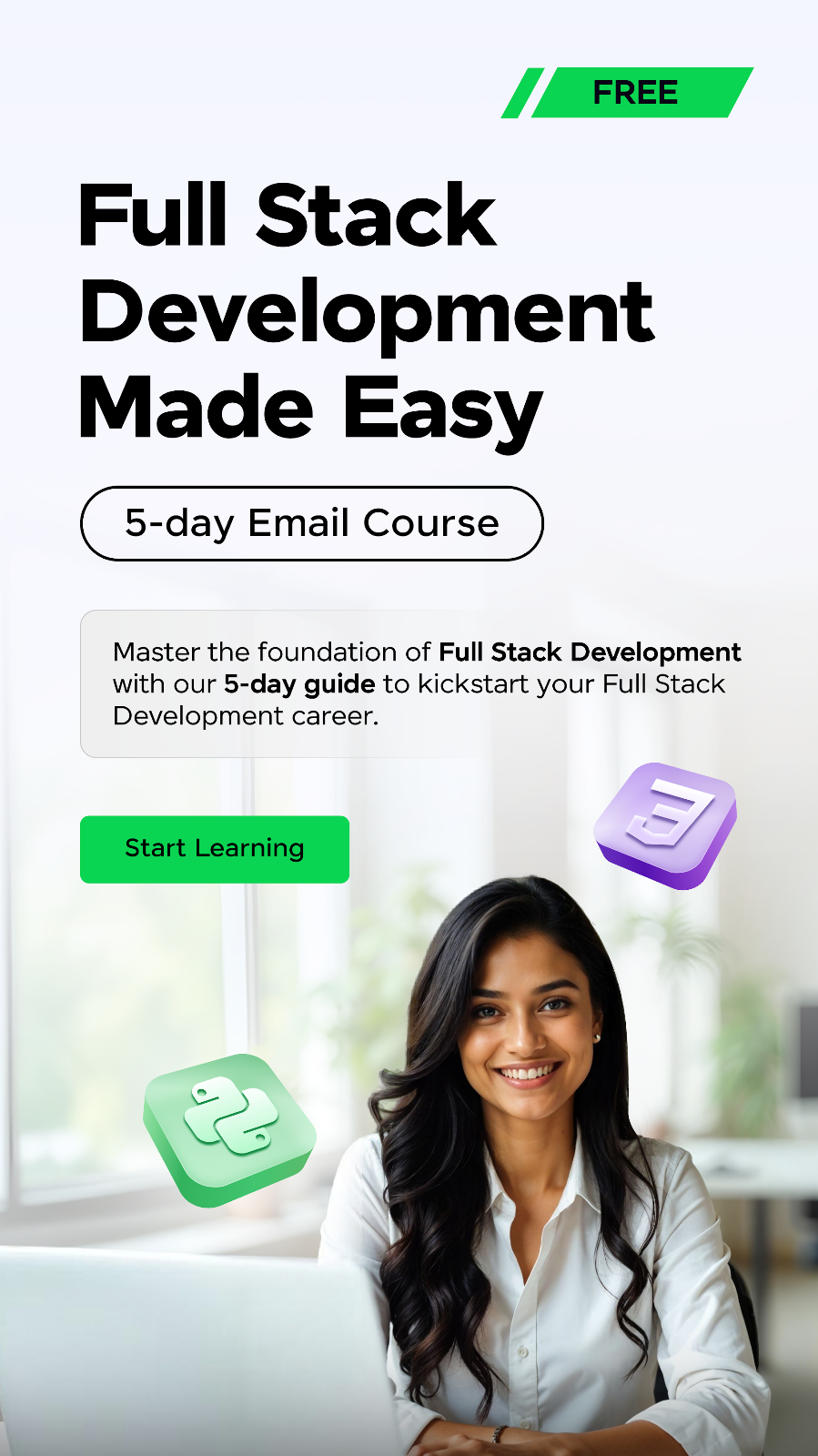








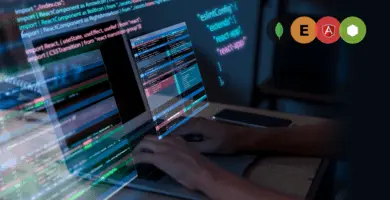
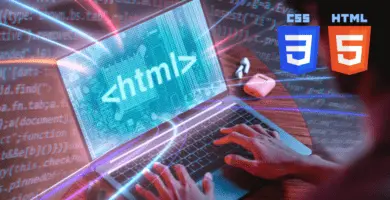








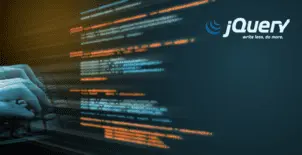


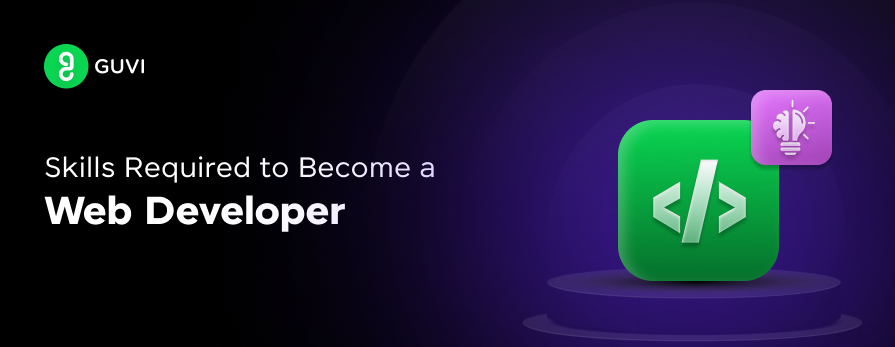
![Top 35 HTML and CSS Interview Questions with Answers [2025] 11 html and css interview questions with answers](https://www.guvi.in/blog/wp-content/uploads/2022/06/2.-HTML-Css.png)
![Top 20+ React Interview Questions and Answers [2025] 12 Top React Interview Questions](https://www.guvi.in/blog/wp-content/uploads/2022/01/Interview-Questions-1.png)
![What is ReactJS? A Beginner's Guide [2025] 13 what is reactjs](https://www.guvi.in/blog/wp-content/uploads/2025/04/what-is-reactjs.webp)



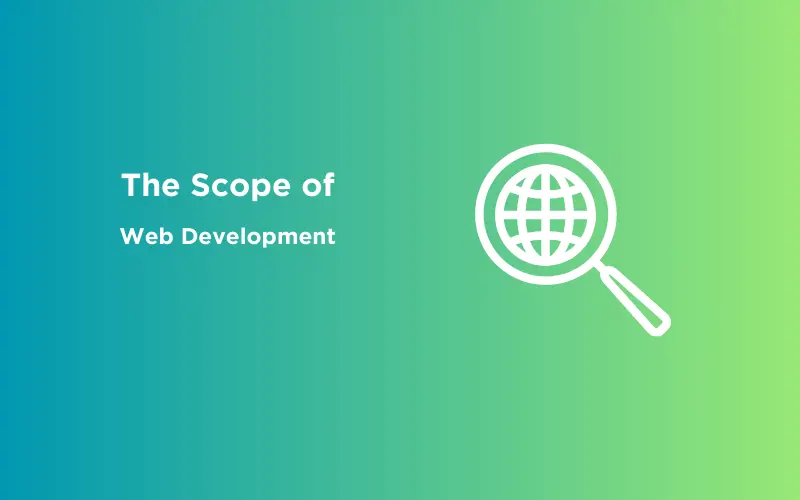

Did you enjoy this article?